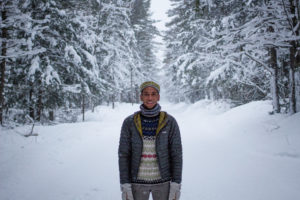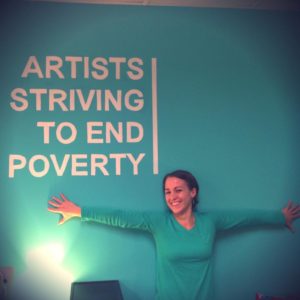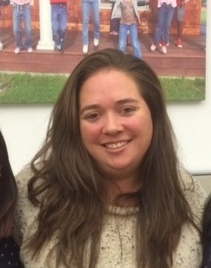We are thrilled to celebrate three exceptional youth practitioners, who are using data and insights from the Youth Development Impact Learning System (YDiLS) to improve their outcomes for youth. In partnership with the Superstar Foundation, Algorhythm proudly announces our first Superstar Award winners:
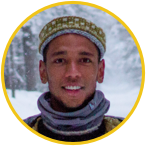
1st Place, Calvin Stalvig
Director of Teen & Apprenticeship Programming / Instructor, Beam Center
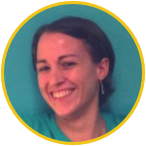
2nd Place, Lizzy Rainer
Director of Programs & Evaluation, Artists Striving to End Poverty
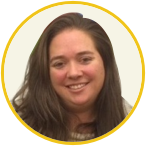
3rd Place, Mary Lee Dinski
Deputy Executive Director/Camp Director, Fiver Children’s Foundation
Algorhythm created the YDiLS to ignite ongoing learning and improvement both within nonprofits as well as across fields of practitioners. These data-driven Superstars truly embody our vision. By using YDiLS findings to tailor and strengthen their work, these practitioners have increased their outcomes for youth. They are committed to growing the field by allowing our 300+ partners to learn from their data and insights they bring to the table during Algorhythm’s community workshops and events.
Our award judges were two of the most respected scholars in the field of youth development and evaluation:
- Dr. David Fetterman, founder of Empowerment Evaluation
- Dr. Sarah Zeller Berkman, founder of the Youth Studies Program at CUNY’s School of Professional Studies.
The competition for our Superstar Awards was tough, with our judges reviewing many strong applications. While we were not able to shine a spotlight on each nominee’s practice, we are still proud supporters of the exciting work they and their organizations are doing with young people across the country. We hope all of our partners will apply next year.
Let’s meet the winners!
1st Place, Calvin Stalvig
As the Director of Teen & Apprenticeship Programming at Beam Center — and an Instructor — Calvin teaches teens to teach younger peers in after-school programs. His enthusiasm for learning and his ability to act on data are two of the qualities that make him a SuperStar.
For example, even though the YDiLS showed that 100% of Beam Apprentices made significant social and emotional Learning (SEL) gains last year, Calvin noticed the program’s retention rate was lower than usual. He believed the program could reorganize to better engage students, so he spent the summer coaching instructors on early engagement, and — as a result — Beam saw a dramatic jump in its retention the following semester: from 75% to 100%!
As one of our judges Dr. Sarah Zeller-Berkman (Academic Director of Youth Studies Programs at CUNY’s School of Professional Studies) reflected:
Calvin’s nomination materials demonstrate his strong commitment to using data to improve outcomes for youth, his own growth as a youth worker and his organization’s retention efforts. It is clear that Calvin has a deep commitment to excellence and he goes above and beyond to ensure that all youth are getting the support they need.
2nd Place, Lizzy Rainer
As Director of Programs & Evaluation at Artists Striving to End Poverty, Lizzy works closely with Teaching Artists, partners, and volunteers to bring the transformative power of the arts to students around the globe. Our award judge Dr. David Fetterman (CEO, Fetterman & Associates) notes:
Lizzy is able to uniquely apply data to the day-to-day elements of a program, transforming it into critical feedback to help staff members better understand what students need and make meaningful programmatic changes to improve the lives of young people.
For example, Lizzy reviews YDiLS data with frontline staff twice per program: once at the start, to plan with pre-survey data, and again at the end to reflect on post-survey data. After a recent report showed 78% of camp youth made significant SEL gains — but struggled with social capital, contribution, and academic self-efficacy — Lizzy wanted to improve on that. She followed the report’s recommendation to make more time for goal setting, devised new leadership opportunities for students, and created ways for students to have more voice in choosing activities. And, after the changes were implemented, 98% of camp youth made SEL gains — including far greater gains in social capital, contribution, and academic self-efficacy!
3rd Place, Mary Lee Dinski
Mary has been with the Fiver Children’s Foundation since 2003, and currently serves as its Deputy Executive Director and Camp Director overseeing all staff development efforts, evaluation, camp, and year-round programs.
In Dr. Zeller-Berkman’s words, what makes her a SuperStar is:
Mary has a long-standing commitment to using data to inform practice. She is adept at using data to push her own thinking and equally skilled at supporting her staff to make meaning of the data, ask critical questions, and put it to use!
For example, Mary engages all levels of Fiver’s team in data-driven decision making: she meets with program staff to identify potential improvements highlighted by YDiLS reports, she meets with an evaluation consultant on a monthly basis to review progress on key objectives, and she also makes sure to review YDiLS data with the Board of Directors’ Program Committee.
Congratulations to Calvin, Lizzy, and Mary — and thank you for your wonderful work with young people. And for shining a spotlight on how to use data for continuous learning!
Algorhythm’s Youth Development Impact Learning System is online assessment, planning and evaluation systems for programs that want to learn about their impact, improve their practice and grow the field.
The Superstar Foundation was founded in 2007 with a two-fold mission: to identify and reward individuals who use data to improve outcomes for underserved individuals, families and communities; and to promote and advance transformative relationships as the driving force to outcome achievement in the social services sector. As health, education and social services continue to progress towards better measurement of outcomes, the Superstar Foundation believes that transformative relationships and a commitment to data-based decision making at the level of engagement is the key to all long-term, sustainable improvement in the lives of those we serve.

